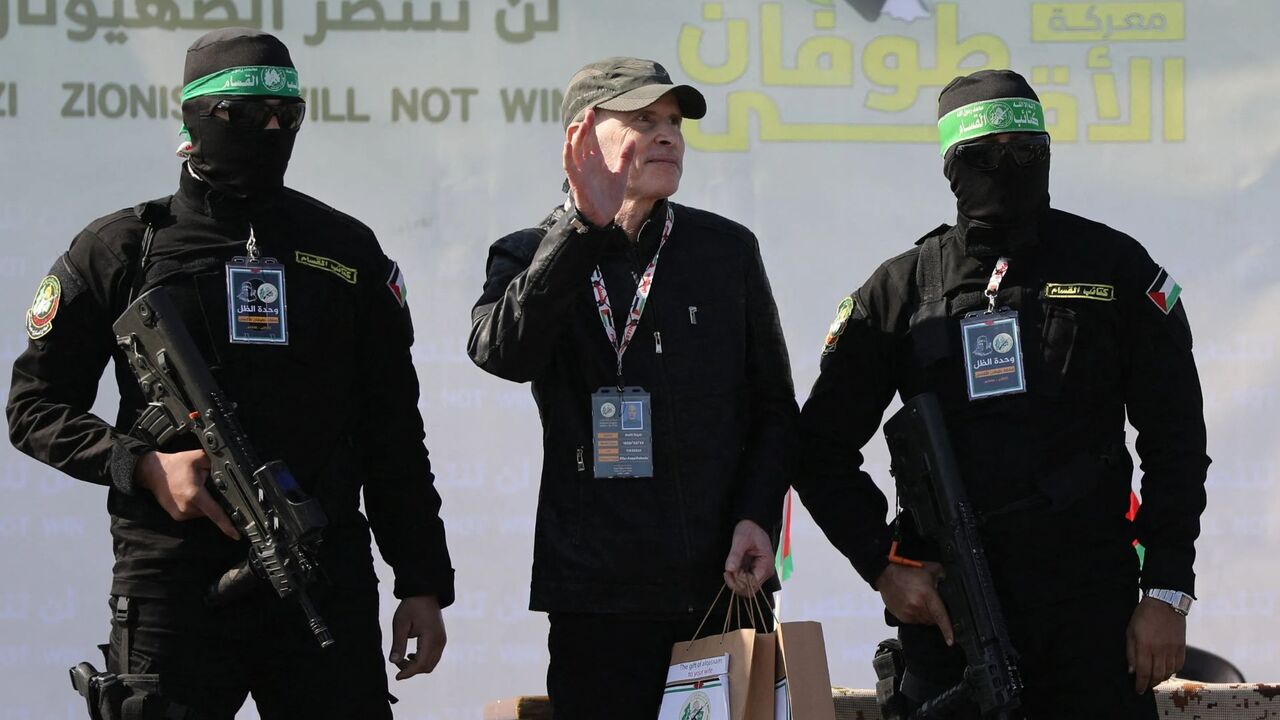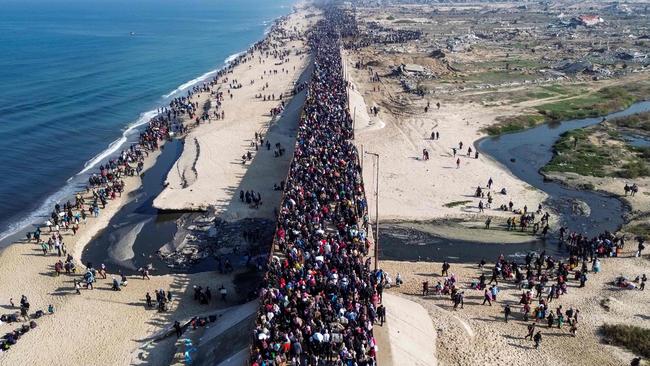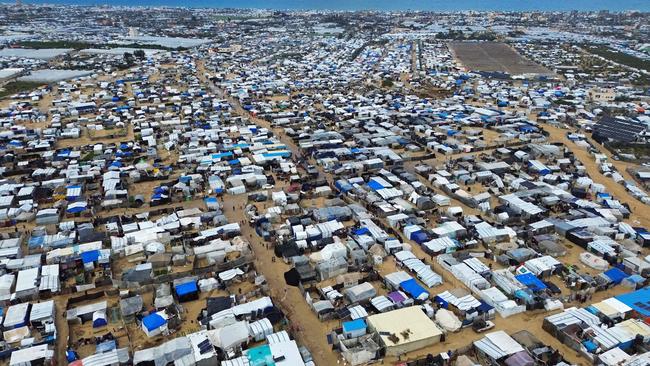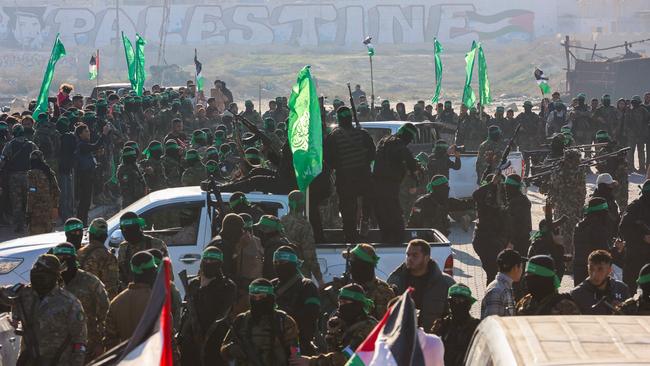Why Arab states hate Trump’s plan to relocate Palestinians from Gaza
A history of violent conflict is among the reasons that regional neighbors are opposed to providing a haven for war-weary Gazans

President Trump has repeatedly said he wants Palestinians in Gaza to move out of the devastated enclave and into neighbouring Egypt and nearby Jordan. The Arab world is pushing back, ostensibly because it would undermine efforts to create a Palestinian state.
But Arab leaders have another reason to oppose providing safe haven to millions of Gazans forced from their homes: past experience. Palestinian refugees have been a headache for Arab governments since the creation of the state of Israel in 1948.
The violent Palestinian nationalist movement that emerged then spread to other countries as they took in refugees from the 1948 Arab-Israeli war and the Six-Day War in 1967, spawning conflicts with Israel that reverberate today.
In the decades that followed, that movement turned into a political and existential threat for the governments of Arab states hosting Palestinians - whose numbers included guerrilla fighters launching attacks on Israel. Arab states suffered Israeli reprisals for such assaults, often at the expense of native-born populations.

As of mid-2022, there were 5.8 million Palestinians classified as refugees under the mandate of the United Nations Relief and Works Agency for Palestine Refugees. Most of them are descendants of people displaced by war decades ago. Many live in refugee camps run by UNRWA.
In some Arab countries, Palestinian refugees complain they are treated as second-class citizens, largely confined to refugee camps and limited in their work opportunities. It is a status quo that is sometimes justified because changing it would be a tacit recognition that the refugees will never return to their families’ homeland in what is now the state of Israel.
Foreign ministers of Jordan, the UAE, Saudi Arabi, Qatar, Jordan and Egypt met Saturday and said Palestinians’ ability to remain on their land should be ensured, and they rejected any attempts to forcibly remove them.
“The parties strongly opposed any measures aimed at uprooting Palestinians from their land in any form,” the ministers said, “warning that such actions threaten regional stability, risk escalating the conflict, and undermine prospects for peace and coexistence.”

Civil war in Jordan and Lebanon
In 1951, Palestinian militants assassinated Jordan’s King Abdullah, beginning the tumultuous history between the kingdom and the Palestinians. In the early 1970s, Yasser Arafat’s Palestine Liberation Organization was driven out of Jordan after the group tried to seize power from King Hussein but was crushed by the state military in a brutal civil war. Thousands of Palestinians were either killed in the fighting or expelled in the aftermath; many went to Lebanon.
There, Palestinian fighters regrouped. Israel invaded Lebanon in 1978 after Palestinian militants infiltrated Israel by sea and attacked a bus, killing 38 passengers, including 13 children.
Palestinian fighters also became involved in a civil war on the side of the Lebanese National Movement against the Maronites - who eventually were supported by Israel. Palestinian attacks on Israel in that war led to an Israeli invasion of Lebanon in 1982, when the PLO was formally expelled.
The Lebanese militia Hezbollah formed to resist the Israeli occupation, taking inspiration, arms and funding from fellow Shia Muslims in Iran who had overthrown the authoritarian shah in 1979. Though primarily made up of Shia Lebanese, Hezbollah has trumpeted the Palestinian cause and held a hostile posture toward Israel for decades, fighting wars in 2006 and last year.

Palestinians remain a lightning-rod issue in Lebanon, where they almost exclusively live in UNRWA-maintained areas that grew from refugee camps. Giving them more rights and citizenship would upset the delicate sectarian balance among Lebanon’s Sunni, Shia, Christian, Druze and others.
Jordan still has the biggest population of Palestinians with refugee status, with 2.4 million. Most - but not all - have Jordanian citizenship, posing a challenge to the US-backed government in Amman that has recognized Israel since a 1994 peace deal.
The country’s ruler, King Abdullah II, has ruled out accepting Palestinian refugees en masse, citing “the need to keep the Palestinians on their land and to guarantee their legitimate rights, in accordance with the Israeli and Palestinian two-state solution.”
Egypt and the Gaza Strip
After the 1948 war, Egypt administered a Philadelphia-sized swath of Mediterranean coastline that became known as the Gaza Strip. The US and UN initially tried to resettle Gazans in Egypt, Libya and other Arab countries, but President Gamal Abdel Nasser halted the effort in 1955 after protests erupted.
Nasser’s stand helped turn the Palestinian struggle for a nation into a cause that resonated across the Arab world and brought a halt to international attempts to resettle them elsewhere.
Israel occupied Gaza after the 1967 war, and Egypt reached a peace accord with Israel in 1979. Since Hamas took control of Gaza in 2006, Egypt has joined an Israeli embargo on the strip.

Egyptian officials say that between 110,000 and 115,000 people have crossed into its territory from Gaza since the start of the war, but not all of them have remained in the country.
The government - which restricts freedom of speech and assembly - has allowed Egyptians to protest in the streets against calls for Palestinians to be relocated from Gaza in recent days.
Egyptian President Abdel Fattah Al Sisi has called Trump’s call for relocation an “injustice”. “I must keep public opinion in mind, not that of Arabs or Egyptians, but the opinion of a general public who sees what has befallen the Palestinian people over the past 70 years as a historical injustice,” Sisi said in a speech Wednesday. “I do not think [displacement] can happen again.”
But he also said in October 2023 that moving Palestinians to Egypt’s Sinai Peninsula could turn the area into a base for attacks on Israel, threatening the peace between the two countries.
Iraq
Thousands of Palestinians fled to Iraq after the 1948 war, when the Iraqi army fought Israeli forces around the city of Haifa.
The Iraqi government then and later under the subsequent dictatorship of Saddam Hussein gave the refugees free housing and schooling. Saddam launched a paramilitary group with the stated aim of conquering Jerusalem, conscripting poor Shia Muslims and fueling popular resentment of the Palestinian residents.
Palestinians in Iraq faced a backlash after the US invasion of 2003 toppled Saddam’s government, including “intense harassment, violent attack, and forced evictions from their homes,” according to a Human Rights Watch report. Much of the pre-2003 population of 34,000 fled to Jordan.
Syria
At least 80,000 Palestinians fled to Syria during the 1948 war, eventually settling across the country in about a dozen camps. Conflict between the government and militants largely happened outside its borders.
The Syrian military occupied Lebanon for almost 30 years starting in 1976, during the country’s civil war, and fought with Arafat’s PLO, eventually helping to expel him to Tunisia.
The Arab Gulf states
The Persian Gulf monarchies technically don’t host any Palestinian refugees, instead viewing them as immigrants seeking a better life. Yet the Gulf has more than 600,000 Palestinians, including some who hold influential roles advising the region’s monarchies.
There is a “tacit understanding that provides them a haven in exchange for noninterference in their hosts’ internal affairs,” said a 1983 Central Intelligence Agency report. But beginning in the 1980s, Gulf leaders, worried about radical Palestinian leaders abroad calling for more action against Israel, began putting limits on Palestinian migration, the CIA said.
“The Palestinian cause is popular, and the Gulf governments fear that any Palestinian discontent within their countries would spread to natives and other expatriates unhappy with the ruling families.”
The most significant rupture in the Gulf-Palestinian relationship came in 1990, when Arafat declared his support for the Iraqi invasion of Kuwait. It led to Kuwait eventually expelling more than 300,000 Palestinians.
- Roque Ruiz and Summer Said contributed to this article.
The Wall Street Journal





To join the conversation, please log in. Don't have an account? Register
Join the conversation, you are commenting as Logout